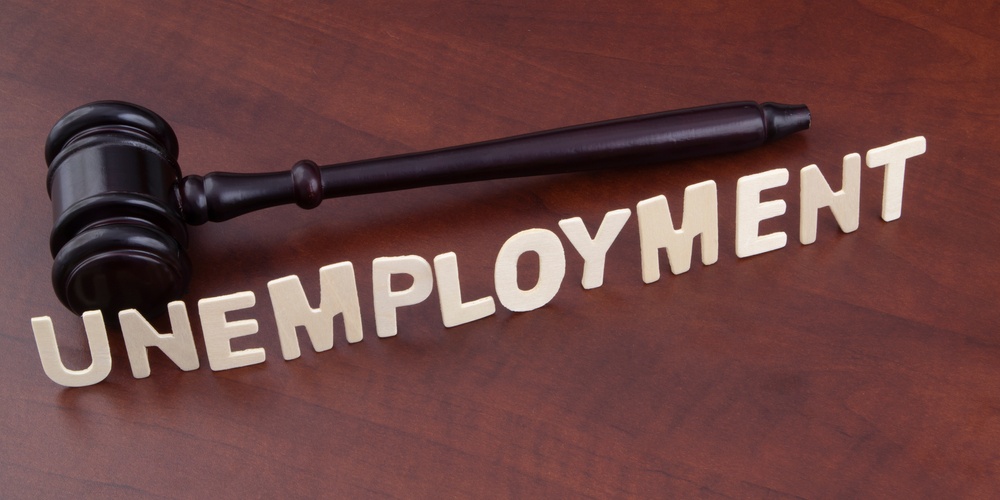Unemployment Insurance (UI) rates rise whenever an employee with a valid demand files an unemployment claim with the state against the employer. Successful unemployment claims result in charges against the employer’s unemployment insurance account and increase the insurance rates. That is because the employer’s unemployment insurance rate is determined by the employer’s paid benefit claims.
Those higher rates eat away at the employer’s profit margin. It is a waste of staff time and company profits to challenge every unemployment claim. Fighting against invalid claims, on the other hand, may result in lower UI rates. What’s more, false and misreported unemployment claims rise to the level of fraud.
The best way to challenge invalid unemployment claims is through an HR outsourcing partner that delivers unemployment management services.
When is an employee not eligible for unemployment?
The rules for challenging an unemployment claim vary by state. However, the general rule is that employees may not collect unemployment insurance if they are at fault for the loss of their jobs. For instance, employees are not eligible to draw unemployment insurance if their employment is terminated for any of the following reasons:
- The employee left the job voluntarily (to prevail the employee must prove the quit was for cause attributable to the employer),
- Willful employee misconduct,
- Intentional violation of the employer’s policies or rules,
- Failure to follow instructions,
- Excessive absenteeism without good cause, and
- Failure to meet normal standards of behavior (for example, sleeping on the job, theft, sexual harassment, etc.)
To prevail on termination for cause scenarios, the employer has the burden of proof. The employer must show justification for the dismissal. To do that, the employer must keep careful documentation of the company’s employment policies and show the employee’s breach of those policies that resulted in the termination. In addition, the employer must show the management’s steps taken to deal with the violations.
How can you challenge unemployment claims?
An employer must take specific steps to challenge unemployment claims successfully:
- Employees Must Receive Notification. The terminated employee must know that the misconduct cited is grounds for dismissal. Employees should have access to the company’s written employment policies, such as in a handbook provided to each employee.
- The Employer Must Verify Details. The employer should provide the employee with written warnings about the specific offending behavior with details describing how the employer intends to handle such inappropriate conduct if it happens again. The employer should document management’s direct contact with the employee notifying them that the behavior violates company policies. The employer should ask the employee to sign and date the written warning to show he received them. Verbal warnings are not good enough.
- Management Must Gather Evidence. The employer must have policies in place that set the expectations for employees. Employers must record violations and distribute the notifications to employees that their behavior is unacceptable.
- Employers Should Attend the Claims Hearing. Employers should respond promptly to unemployment insurance claims. If you do not comply with requests for additional information, you may lose the right to notification of the hearing examiner’s final claim decision. You may also lose your right to appeal that decision. You may also lose the right to attend a hearing on the claim. That is a significant loss. Employers should attend the unemployment claim hearing because hearings include testimony by witnesses and the right to cross-examine the witnesses. At the hearing’s conclusion, the hearing officer will study the evidence and the testimony and render a decision distributed to all parties by mail.
What types of employment policies should employers adopt?
Types of employment policies include:
- A drug-free workplace,
- Internet use by employees,
- Employee expense policy,
- Attendance, time clock requirements, time-off policies, and
- Appropriate verbal and physical conduct policies such as harassment policies.
Suppose an employer does not gather enough documentation of the company’s employment policies to support the challenge to a former employee’s unemployment claim. In that case, the hearing examiner may find the unemployment claim valid.
Why outsource unemployment claims management?
Outsourcing HR unemployment claims management to a comprehensive HR outsourcing partner often helps companies to manage unemployment insurance rates. That holds true whether the claims examiner finds the claim valid or not.
Outsourcing HR duties can help employers establish job placement programs for recently fired employees, reducing the gravity of an unemployment claim.
HR outsourcing partners are:
- Experts at determining whether a challenge to an unemployment claim is worth pursuing in terms of both time and money;
- Experts at ensuring that your documentation policies and procedures are adequate to justify employee dismissal practices, and
- Experts at conducting employee termination training to avoid unnecessary claims.
The most comprehensive HR outsourcing solution you can engage is a Professional Employer
Organization (PEO). The PEO will review the company’s:
- Unemployment history,
- Number of UI claims each year,
- Average amount of UI claims each year, and
- Employee turnover rates.
The PEO will manage the unemployment claims with an eye to lowering your state UI rate or at least stop it from rising higher. The full-service PEO will also manage the unemployment claims hearings calendar. When you partner with a PEO you won’t even have to attend the unemployment claim hearing. The PEO does that for you and represents your interests at the hearing.



